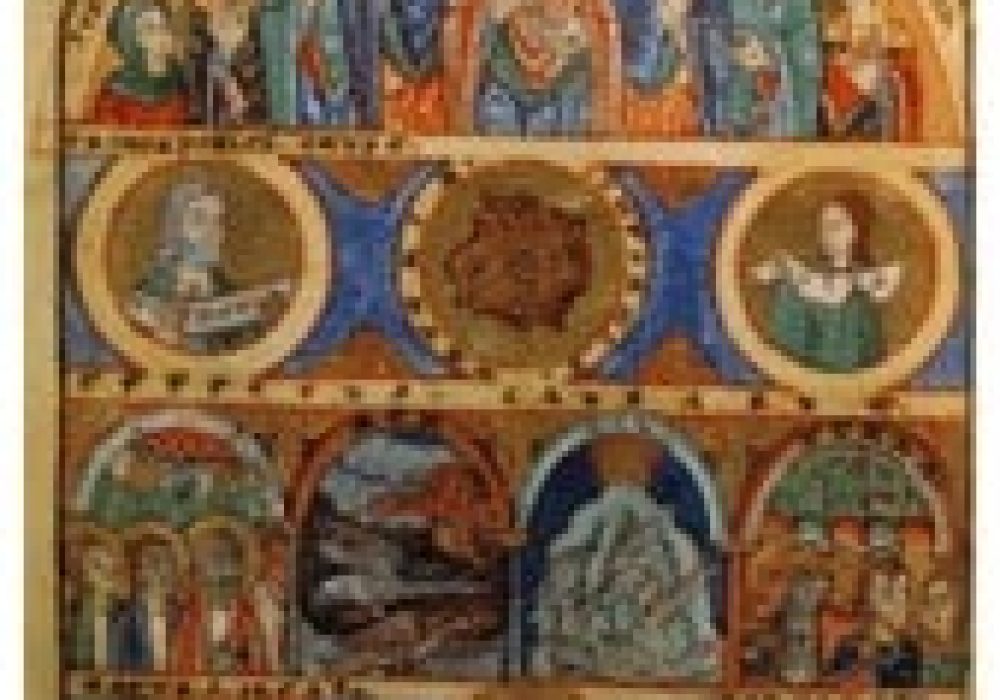The Carolingian thinker Johannes Scottus Eriugena (810-877CE) is the author of numerous philosophical and theological works. Most famous among them is the Periphyseon or On Natures (864-866CE), a metaphysical dialogue drawing on the Greek and Latin patristic and classical traditions. Having been falsely condemned because of pantheism in 1225, Eriugena was only seriously studied in the twentieth century, which saw a major effort to complete all the critical editions of his works (until 2005). With all the modern tools in place, it is time to map out a vista of what the tradition of medieval Western thought would have looked like, had he not been excised from it. For Eriugena is by all accounts the most interesting and systematic thinker between Augustine and Thomas Aquinas.
What Eriugena has in common with Augustine (354-430CE) is his deep attention to creation and to exegesis as the prime vehicle for conveying his ideas about it. Eriugena was familiar with Augustine’s interpretation of Genesis as well as with that of Gregory of Nyssa, and he seems to have situated himself deliberately in between them. The latter half of his major work On Natures is cast entirely as a commentary on Genesis but exegesis was for Eriugena, just like for Augustine, also a vehicle for speculative thought.
With Thomas Aquinas (1225-1274CE) Eriugena has in common a deep interest in precise epistemological analysis: what can and cannot be known by the human mind, and how do we distinguish the reach of the mind from the infinity of the divine? Here Eriugena daringly incorporates the negative theology of Pseudo-Dionysius in what is an unusual definition of nature. While we cannot know the divine, as he transcends the human mind, Eriugena still considers God an integral part of natura, and it is through the via negativa that he wants to approach the divine.
With both Augustine and Aquinas Eriugena shares an attachment to the mystical structure ofexitus and reditus, or procession and return, as his intellectual journey ultimately parallels a mystical quest, that of the soul on its way to salvation. Where Eriugena is most unlike Augustine and Aquinas, however, is in the neglect that has befallen his thought as opposed to theirs. It is time for a reappraisal, therefore, or rather, time for a first integral appraisal of the thought of John Scottus Eriugena.

